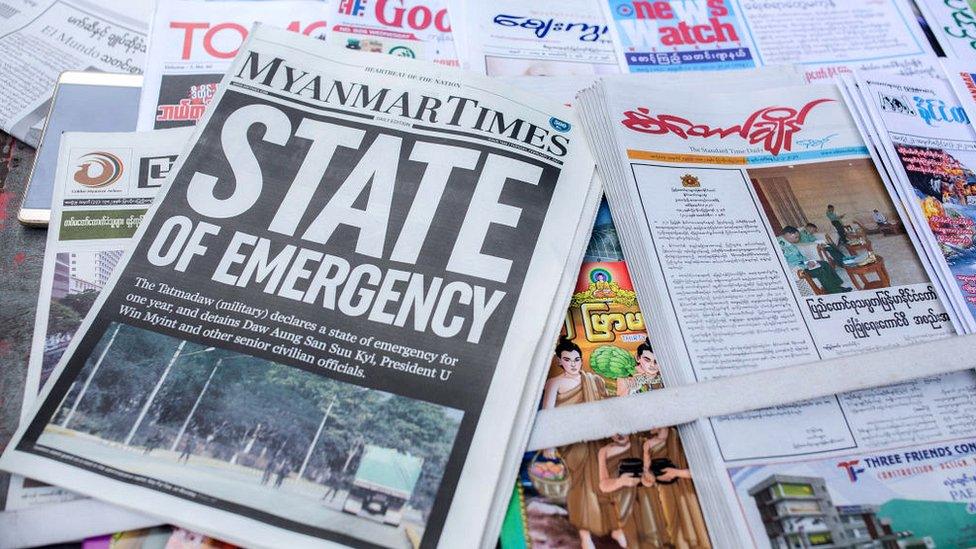Myanmar's Aung San Suu Kyi campaigns in Rakhine state
- Published
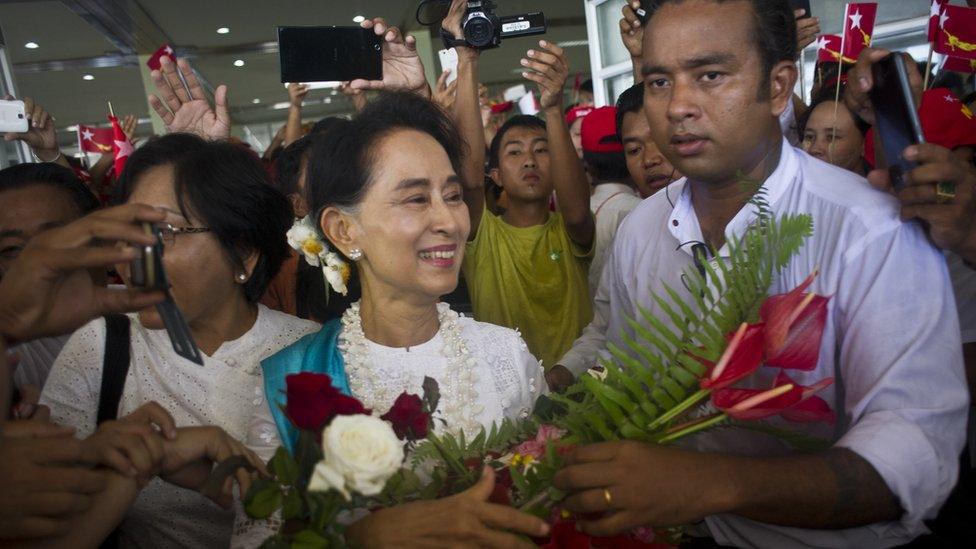
Aung San Suu Kyi will not be visited the most troubled areas of Rakhine state during her three-day visit
Myanmar's opposition leader Aung San Suu Kyi is making her first visit to western Rakhine state since communal violence erupted there three years ago.
She is campaigning ahead of the first openly contested elections in Myanmar, also known as Burma, in 25 years.
Scores of people died and tens of thousands were displaced in 2012 amid clashes between the Muslim Rohingya minority and non-Muslims.
Ms Suu Kyi has been criticised for not speaking up for the Rohingya.
Others, particularly Buddhist nationalists, have accused her of being too close to Muslims.

Myanmar's elections
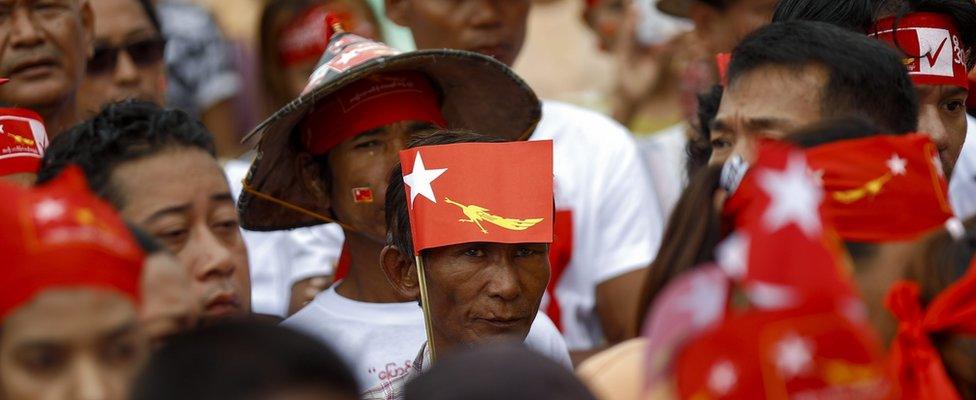
Elections explained : The main players and key issues
Restricted access: The candidate who has never been to his constituency
Ma Ba Tha: Powerful Buddhist monks flex their political muscle
Rohingyas and Suu Kyi: Why has she remained silent?
Great expectations: Do we expect too much of Aung San Suu Kyi?

Most of the people killed or displaced in 2012 were Rohingya Muslims. More than 100,000 Rohingya have since been living in camps in Rakhine.
They are not considered citizens by the government, so are not allowed to vote in the election, among other restrictions.
Ms Suu Kyi's visit will not take her to the north of the state, where the camps are, nor to the state capital of Sittwe, where a rival party holds sway.
The BBC's Myanmar correspondent Jonah Fisher says it is almost certain she will not meet any Rohingyas, nor even use the word, as taking an interest in them would only cost her votes among the country's Buddhist majority.
The chair of Ms Suu Kyi's National League for Democracy said more than 1,000 security personnel were accompanying the party leader during her visit.
"We are worried and taking precautions because we do not want any problem," the AFP news agency quoted Win Naing as saying.
The NLD is facing stiff competition in Rakhine state from the pro-Buddhist Arakan National Party.
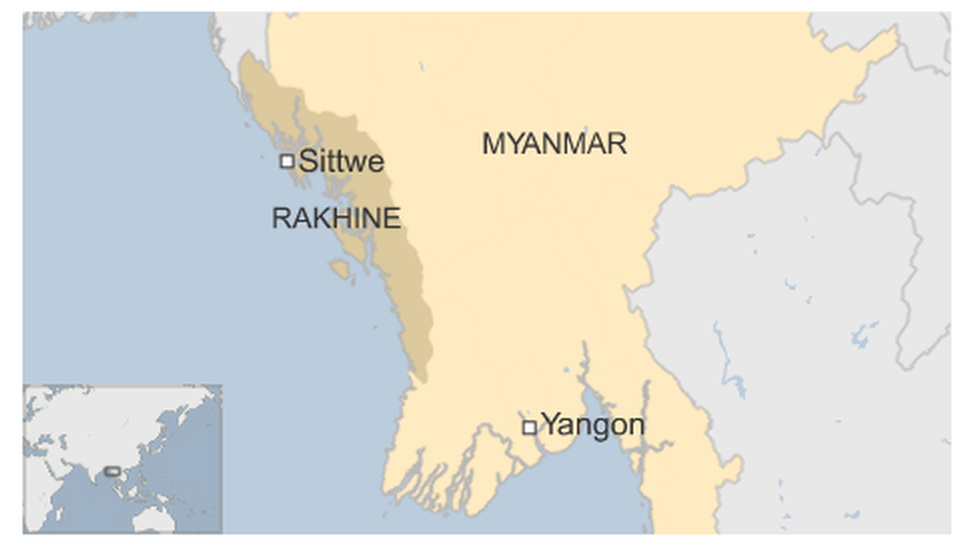
The visit comes a day after the Myanmar government signed a ceasefire with eight armed rebel groups in the hopes of ending decades of conflict.
The government has been engaged in armed conflict with various groups seeking autonomy since independence from the British in 1948.
- Published16 October 2015
- Published15 October 2015
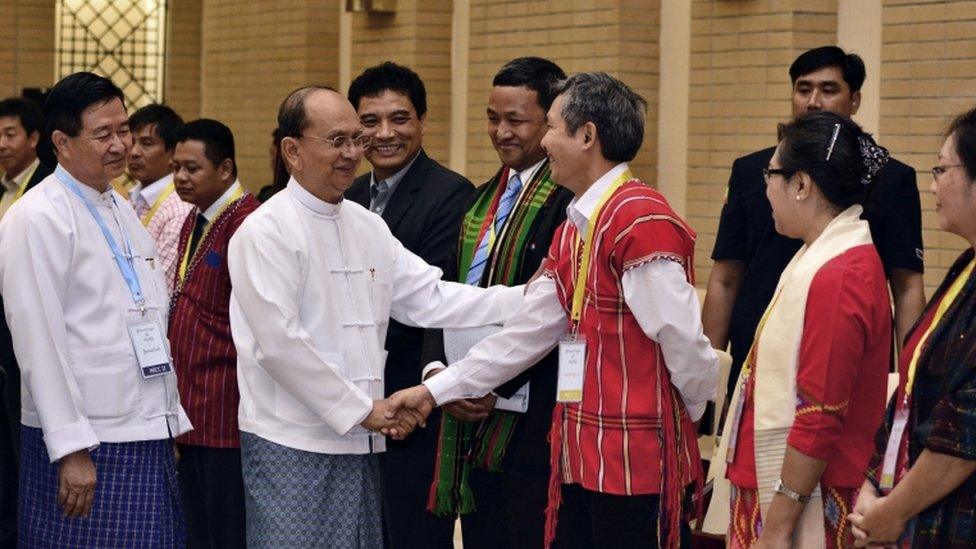
- Published2 October 2015
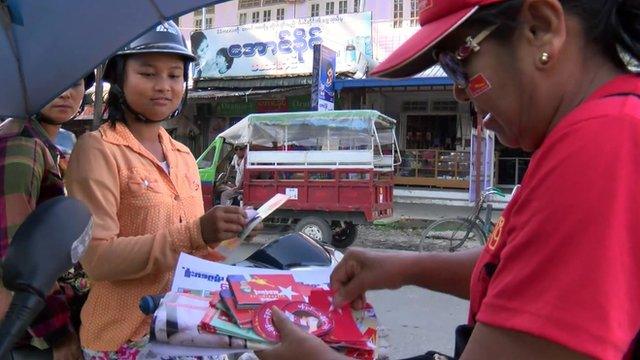
- Published13 October 2015

- Published3 December 2015
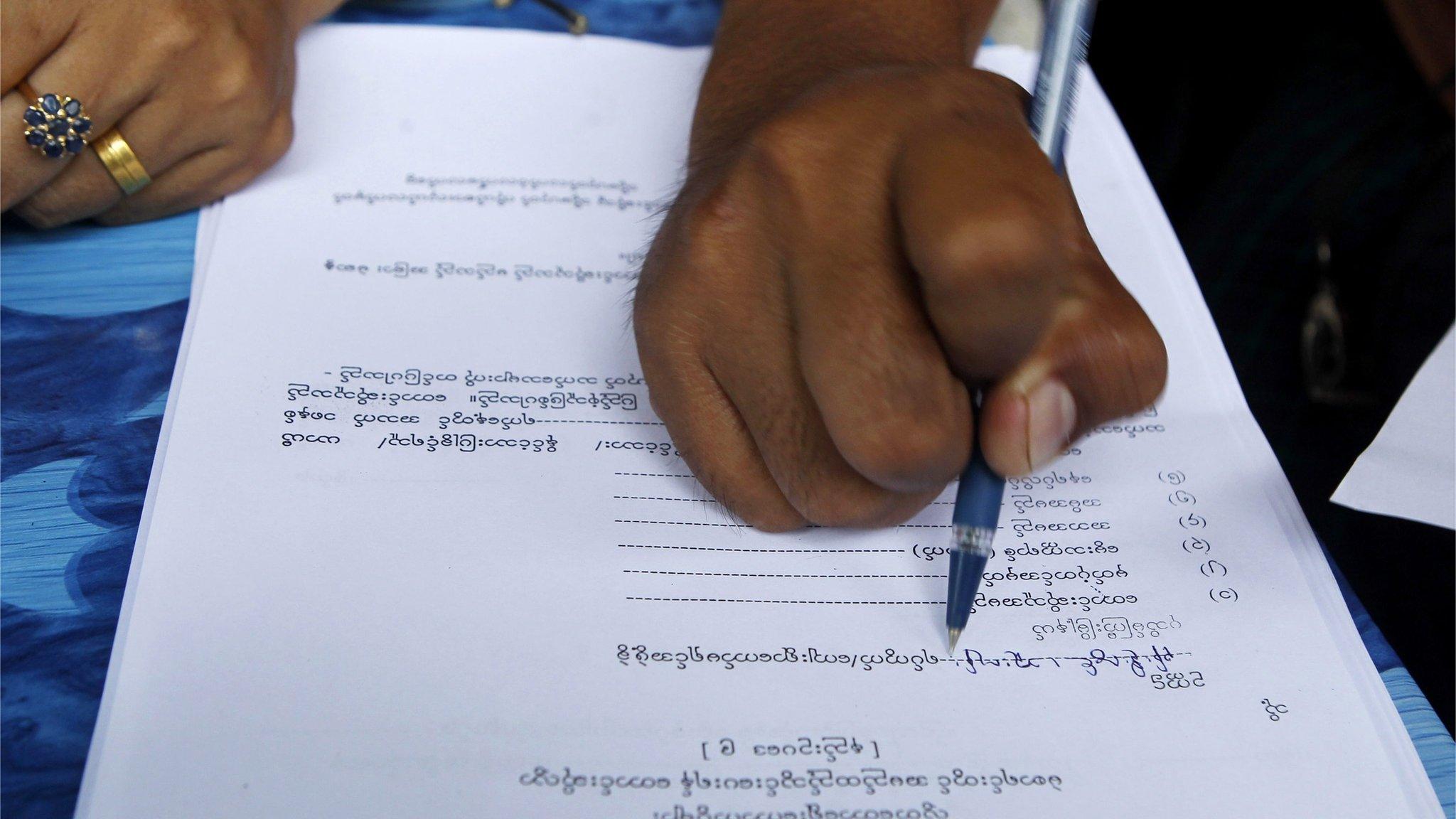
- Published8 October 2015
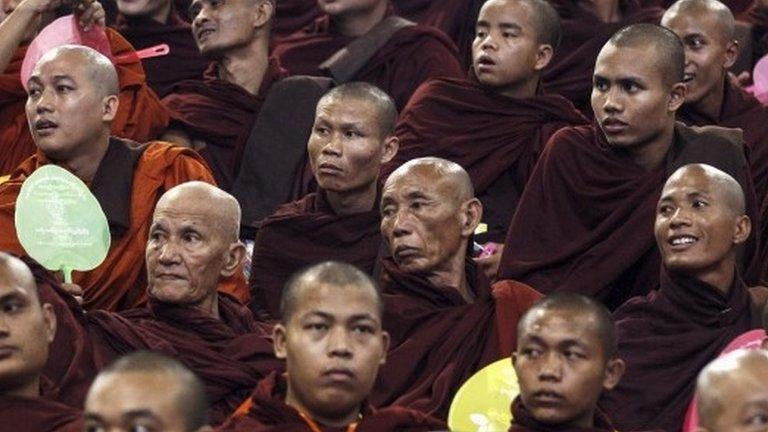
- Published19 May 2023
